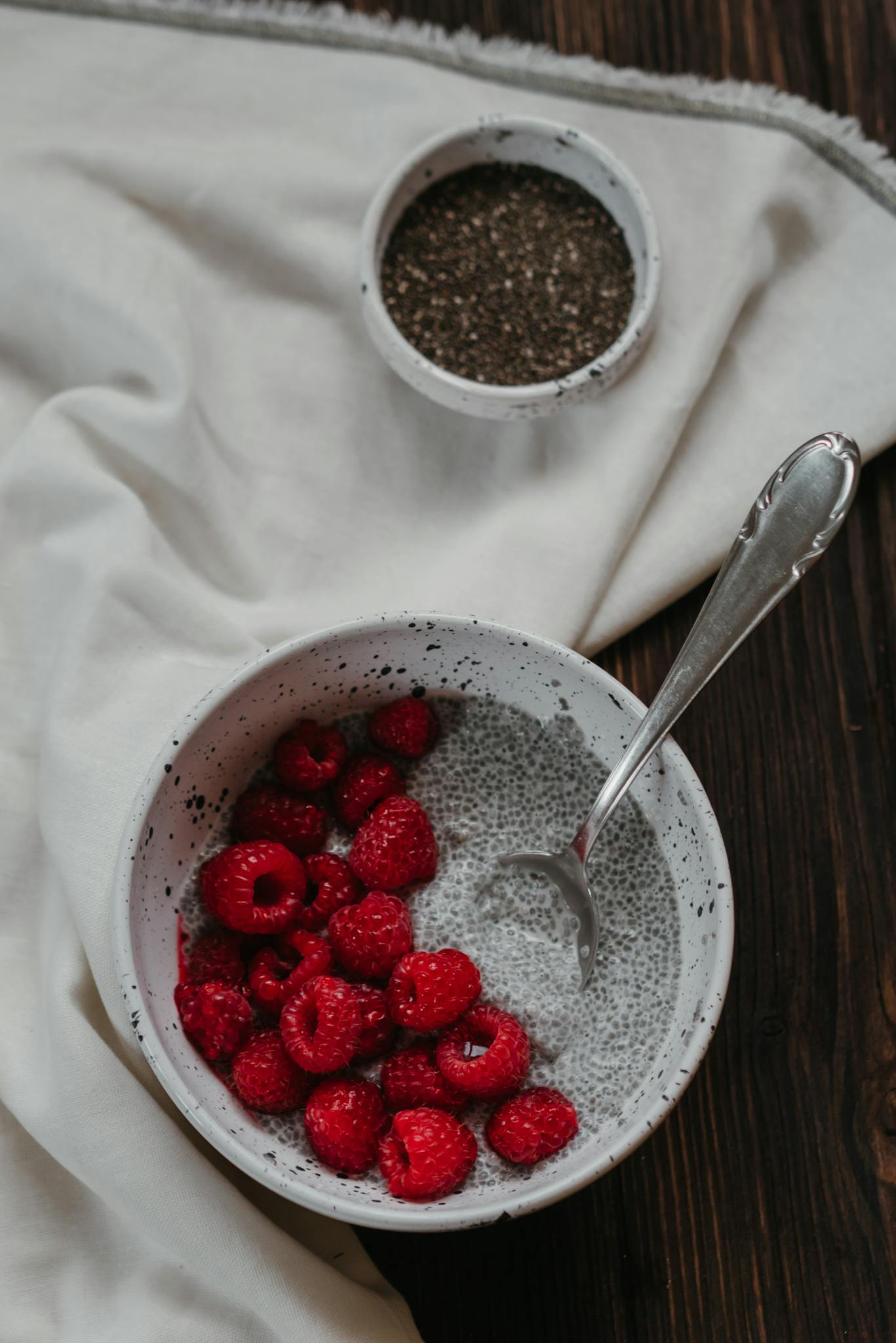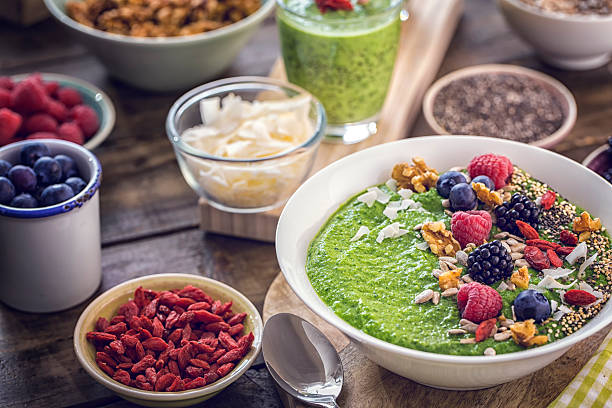Don’t let their tiny size fool you – chia seeds are nutritional giants that pack more health benefits per ounce than almost any other food on Earth. These small, oval seeds from the Salvia hispanica plant have been a cornerstone of Mayan and Aztec diets for thousands of years, with “chia” actually meaning “strength” in the ancient Mayan language. Today, modern science is validating what these ancient civilizations knew intuitively: chia seeds are truly extraordinary.

What makes chia seeds so remarkable is their incredible nutritional density. Just two tablespoons of chia seeds contain 11 grams of fiber, 4 grams of protein, 5 grams of omega-3 fatty acids, and significant amounts of calcium, phosphorus, and magnesium. To put this in perspective, chia seeds contain more omega-3s than salmon, more calcium than milk, more antioxidants than blueberries, and more fiber than flax seeds.
The omega-3 fatty acids in chia seeds deserve special attention. These essential fats, primarily in the form of alpha-linolenic acid (ALA), are crucial for brain health, heart health, and reducing inflammation throughout the body. Most people’s diets are severely lacking in omega-3s, making chia seeds an accessible and affordable way to bridge this nutritional gap. Unlike fish oil supplements, chia seeds are completely plant-based and have an impressive shelf life without going rancid.
Fiber is another standout feature of chia seeds. The high fiber content supports digestive health by promoting regular bowel movements, feeding beneficial gut bacteria, and helping to maintain stable blood sugar levels. This soluble fiber also creates a gel-like substance when mixed with liquid, which can help you feel fuller for longer periods and may aid in weight management efforts.
One of the most fascinating properties of chia seeds is their ability to absorb up to 12 times their weight in water. This unique characteristic transforms them into a gel-like substance that can be used in countless culinary applications. This hydrophilic property also means that chia seeds can help maintain hydration levels in the body, making them particularly valuable for athletes and active individuals.
The protein in chia seeds is complete, containing all nine essential amino acids necessary for human health. This makes them an excellent protein source for vegetarians and vegans who may struggle to get complete proteins from plant sources. The protein in chia seeds is also easily digestible, unlike some other plant proteins that can cause digestive discomfort.
Scientific research has revealed numerous health benefits associated with regular chia seed consumption. Studies have shown that chia seeds may help reduce blood pressure, lower cholesterol levels, and improve heart health markers. Their high antioxidant content may help protect against cellular damage and reduce the risk of chronic diseases. Some research also suggests that chia seeds can help stabilize blood sugar levels, making them particularly beneficial for individuals with diabetes or pre-diabetes.
For weight management, chia seeds offer multiple benefits. Their high fiber and protein content can help increase satiety and reduce overall calorie intake. The gel-forming property of chia seeds can also slow down the absorption of food, leading to more stable energy levels and reduced cravings. Some studies have shown that people who consume chia seeds experience reduced appetite and eat fewer calories throughout the day.
The versatility of chia seeds makes them incredibly easy to incorporate into any diet. They can be sprinkled on yogurt, cereal, or salads for added nutrition and crunch. When soaked in liquid, they create chia puddings that make excellent breakfast options or healthy desserts. They can be added to smoothies, baked goods, energy bars, or used as an egg substitute in vegan cooking.
Chia seeds are also remarkably stable and long-lasting. Unlike flax seeds, which can go rancid quickly due to their oil content, chia seeds can be stored at room temperature for years without losing their nutritional value. This makes them an excellent pantry staple for anyone looking to boost their nutrition consistently.
When purchasing chia seeds, look for organic varieties to ensure you’re getting the highest quality product free from pesticides and chemicals. Both black and white chia seeds offer similar nutritional profiles, so the choice often comes down to aesthetic preference for your recipes.
In our fast-paced modern world, chia seeds offer a simple, affordable way to dramatically improve our nutritional intake. These tiny seeds prove that sometimes the smallest changes can have the most significant impact on our health and well-being.





